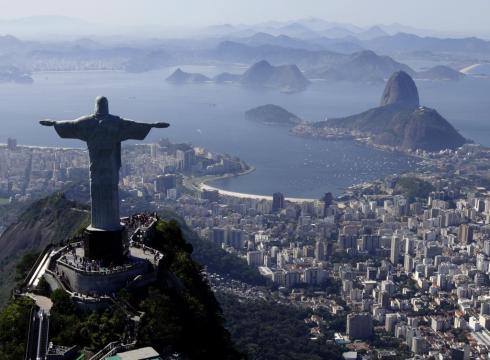
Some answers and analysis, from the International Business Times:
At least 1 million evangelical Christians took part in Saturday’s annual “March for Jesus” in Sao Paulo, demonstrating the growing trend of Protestantism in Brazil.
With 123.2 million of 191 million Brazilians identifying as Catholic according to 2010 census data, the South American nation still holds the world’s largest Catholic population, but adherents to the faith have been steadily declining over several decades, while Protestantism, particularly evangelical Christianity, has been on the rise.
Forty years ago, Brazil’s Catholics stood at 92 percent of the population. In 2000, that figure dropped to around 74 percent, and a decade later it dwindled to less than 65 percent. Protestantism, on the other hand, increased from 15.4 percent of the population in 2000 to 22.2 percent in 2010, a gain of 42.3 million followers.
This shift toward Protestantism has been driven by several factors, but perhaps the most prominent involves Brazil’s growing wealth.
As the world’s eighth-largest economy continues to expand and more and more Brazilians move into the middle class, evangelical Christianity’s message of enjoying earthly prosperity while seeking salvation is becoming more appealing when compared to the Catholic philosophy of sacrifice and piety for eternal glory in the afterlife.
Evangelical groups have been able to proliferate through generous donations from their followers, funding megachurches, television and Internet ad campaigns and large-scale public events like the “March for Jesus.”
Last year, Silas Malafaia, a televangelist and head of the Victory in Christ Assembly of God church in Sao Paulo, Brazil’s largest city and economic hub, launched an online campaign to “lure a million souls” to his congregation. According to the church’s online registry, more than 60,000 people have joined the campaign after making a “voluntary donation” of at least $500, the AFP news agency reported.
Malafaia himself has commented on the trend toward Protestantism, singling out Catholics as primary target for evangelism.
“Most evangelicals are former Catholics, but being Catholic does not mean being a practicing Catholic. By contrast, an evangelical lives his faith at work, in school and in the community,” Malafaia told AFP. “I believe that evangelicals will become a majority in Brazil within 20 years.”
The Assemblies of God, with which Malafaia’s church is affiliated, is the largest evangelical group in Brazil, with more than 50,000 pastors and 100,000 churches across the country.
In contrast, the Roman Catholic Church has only 25,000 priests and 11,000 parishes in Brazil to serve a much larger flock.











